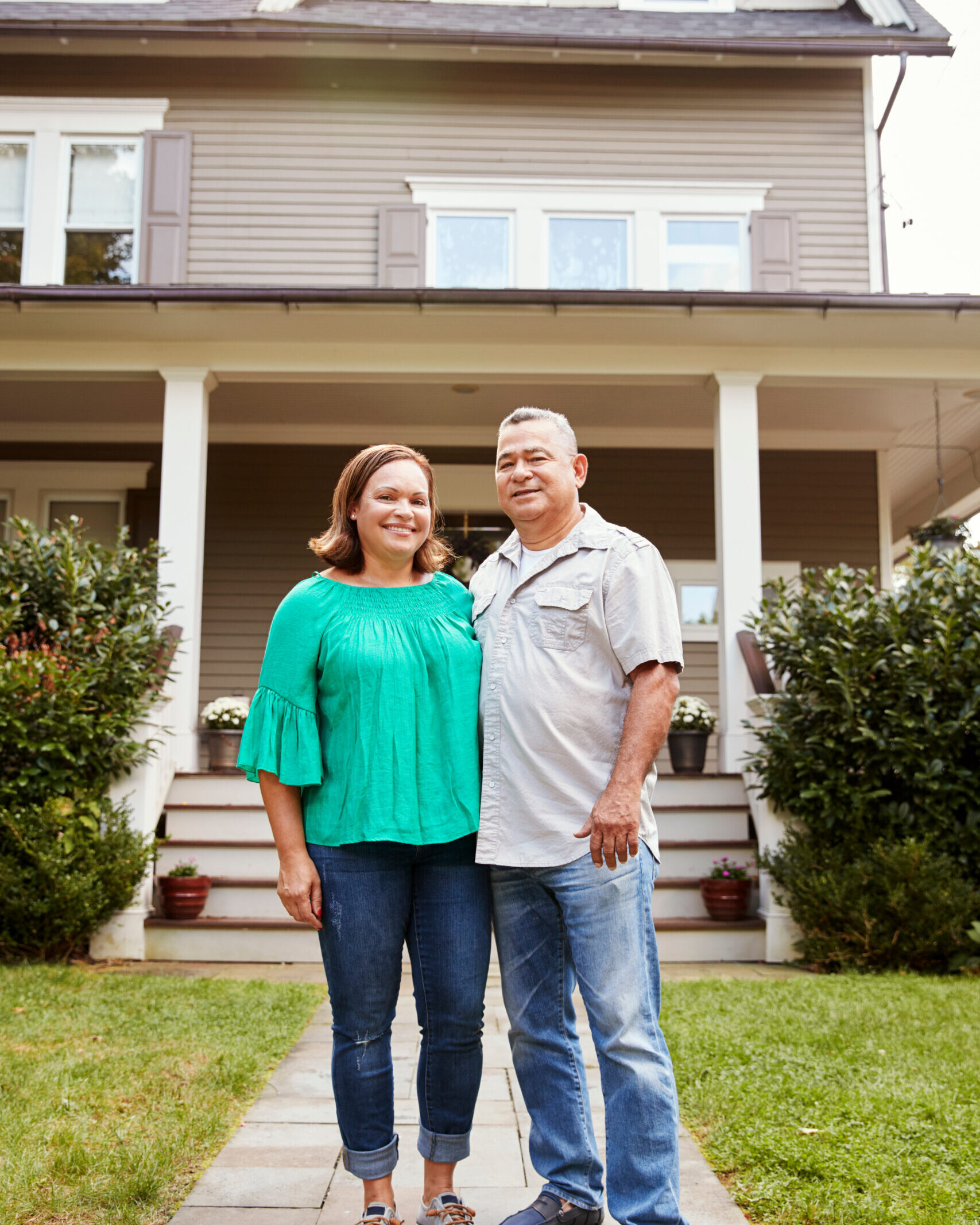HOMEBUYER SUPPORT
Buying a Home
So you want to buy a home! WHRC can help you navigate this exciting, complicated, and sometimes overwhelming process.
Your home will likely be the largest purchase you’ll ever make and being a smart consumer can mean thousands of dollars - maybe tens of thousands of dollars - in savings.
A call to WHRC will connect you with pre-purchase housing counseling, homebuyer education classes, down-payment assistance programs, and alternative homeownership models such as community land trusts and self-help homeownership (think Habitat for Humanity). WHRC provides information and resources tailored to your location, income, and specific needs.
We are here to empower you with the knowledge and tools you need to achieve your homeownership dreams.

Do you need help now?
Use our online portal or the hotline number to contact us. Free interpretation services are available by phone in over 220 languages.

Homebuyer Info Sessions
Interested in buying a home? Not sure where to start? Join WHRC for a live, virtual information and Q&A session. We share an overview of resources available for homebuyers in Washington, and how you can get started on your homeownership journey.
Deep roots in Washington?
You could be eligible for the new Covenant Homeownership Program, which offers help with the down payment on a home. This program may be for you if:
- You or a parent/grandparent lived in Washington state before 1968
- That person is Black, Hispanic, Indigenous, or in another racial group identified in the Covenant study
- You meet income guidelines for the program
- Call WHRC today to learn more!


Frequently Asked Homebuyer Questions
Click on each question to learn more.
A homebuyer education class is an online or in-person class you can take to better understand the process of finding, buying, and owning a home. Homebuyer education may be a requirement by your mortgage lender or a program offering you downpayment or other buyer assistance. Even if you are not required to complete homebuyer education, taking a class will clarify the homebuying process and give you an opportunity to ask any questions you may have.
The most widely available classes are sponsored by the Washington State Housing Finance Commission and available in libraries across the state as well as online. Lasting five hours, the Commission’s class is taught by realtors, non-profits, and lenders working in partnership to bring you a thorough, neutral curriculum. If you are working with a specific non-profit agency to purchase a home, that agency might require the Commission’s class, replace it, or supplement it with its own class or series of classes. After attending the class, you will receive a certificate of completion. Click here to find a homebuyer education class in your area or call the WHRC hotline.
Homebuyer education and pre-purchase counseling serve a similar purpose, but they are not the same service. While homebuyer classes provide general information in a group setting, pre-purchase counseling offers one-on-one guidance tailored to your specific situation. Homebuyers typically pay a fee for this service, though some homebuyer assistance programs offer pre-purchase counseling free of charge as part of the requirements for participating in their program. In a pre-purchase counseling session, the counselor will pull and review your credit and examine your household budget, offer information on different types of loan products, and recommend follow up steps to address potential barriers and keep you moving towards your goal.
Choosing a mortgage lender is an important decision, and being selective can save you thousands of dollars over the life of your loan. Because lenders have flexibility with the rates they offer, you may not want to take the first rate you’re offered. A low rate, however, is not the only consideration when selecting a lender, and we encourage you to take the following points under advisement:
- Is the mortgage lender knowledgeable about downpayment programs in Washington and do they have experience helping clients utilize down payment assistance toward the purchase of a home?
- Do you feel comfortable talking to them and asking questions? Buying a home, especially as a first-time homebuyer, can be an overwhelming process and it’s important your lender can answer your questions.
- Is the lender able to originate a variety of loan types, including conventional, VA, FHA, and USDA loans?
WHRC maintains a directory of vetted mortgage lending professionals who are licensed to practice in Washington. While we verify credentials to ensure they meet licensing requirements and commit to honoring our Equity in Homeownership values, inclusion in this directory is not an endorsement of any specific lender or professional. If you’re interested in referrals to vetted lenders, please contact our hotline or email us at [email protected].
Finding the right real estate agent is an important step in the search for your new home. First and foremost, your real-estate agent represents you during the homebuying process. They should have a keen understanding of the local housing market, a strong ability to negotiate, and a good familiarity with the community in which you’re looking to buy a home. If you are using a homebuyer assistance program to purchase your home, a real estate agent that is familiar with these programs can be more effective than one who is not. WHRC does not make recommendations to specific real estate agents, but your homebuyer program (if you are using one) may have a few to recommend to you.
Consider asking these question to help you make the right decision:
- Are you a full-time professional real estate agent?
- How long have you been representing buyers?
- Do you have a team that supports your clients? If so, who will be contacting me throughout my purchase and what kind of turnaround time can I expect when I make an inquiry?
- How do you see the home-search-through-closing process working?
- How do you determine which homes to show me?
- How do you determine if a home is priced right?
- What professional designations do you have?
- Have you worked with first-time homebuyers?
- Are you familiar with the homebuyer assistance program I am using to buy my home?
WHRC maintains a directory of vetted real estate professionals. While we verify credentials to ensure they meet licensing requirements and commit to honoring our Equity in Homeownership values, inclusion in this directory is not an endorsement of any specific real estate professional. If you’re interested in referrals to vetted real estate agents, please contact our hotline or email us at [email protected].
Excellent credit (above 720 on the FICO scale) will give you access to the lowest rates and most favorable loan programs, but those with good or fair credit still have options when qualifying for a loan. The minimum credit score varies for each loan type. Conventional loans typically require a credit score of 620 or higher and FHA loans typically require a credit score of 580 or higher.
You can check your credit score once a week for free through the 3 major credit reporting bureaus, Equifax, Transunion, and Experian. Your bank or credit union may also offer you access to your FICO score for free. A HUD-certified housing counselor can help you assess whether raising your credit score will improve your home buying options. If you need to increase your credit score, credit counseling can help. Call WHRC to get connected to these resources.
Lenders and money management experts recommend keeping your monthly home payment (including taxes, insurance and any Homeowners Association dues) at 28% or less of your gross monthly income. Experts also recommend keeping your total debt payments – including your mortgage, credit cards, vehicles, school loans and any other debt – to 36% or less of monthly income. For example, if you make $5,000 per month, a total debt payment of $1800 or less is ideal. Some lenders may go above this, depending on circumstances, but a debt-to-income ratio (DTI) over 43% makes approval for a loan unlikely.
A housing counselor can help you review your household budget including recommending ways you might reduce debt to accommodate your homeownership goals.
A “down payment” is the amount you contribute to the home purchase, either from your own money, a down payment assistance program, or both. Many first-time homebuyers believe they need a minimum down payment of 20%. For many people, saving this amount can be a huge roadblock and sometimes the sole reason they feel they are not ready to be a homeowner.
Putting 20% down is NOT a requirement to buy a home. On average, homebuyers put 6% down and some loan types require even less. For example, FHA loans require only 3.5% down, and USDA loans and VA loans do not require a down payment at all. A higher down payment will lower your monthly payments and your overall loan cost.
Ultimately, the amount you put toward a down payment depends on your monthly income, your current savings, the housing market itself, and your overall goals. A housing counselor can help you determine what size down payment works for your budget.
Several down payment assistance programs exist for Washingtonians, and some homebuyers will find that they qualify for more than one program, which can often be layered together to maximize their savings. Contact us today to learn more about down payment assistance programs and work with a HUD-certified housing counselor to start your homeownership journey.
Industry experts recommend that you set aside 1-3% of the home’s value annually for maintenance and repairs. Another way to determine this amount is to create a list of your planned maintenance and repairs for the year, calculate the anticipated costs of those projects, then divide by 12. One benefit of down payment assistance is that it may allow you to conserve some of your money for a maintenance and repair fund.
How much to set aside for emergencies is ultimately determined by you. Many experts recommend setting aside 3-6 months of living expenses. The more money you save, the better equipped you will be to handle an emergency, but keep in mind that you want to set aside an amount that is realistic for your budget. A housing counselor can help you develop a household budget that includes savings for emergencies, repairs, or other savings goals.

